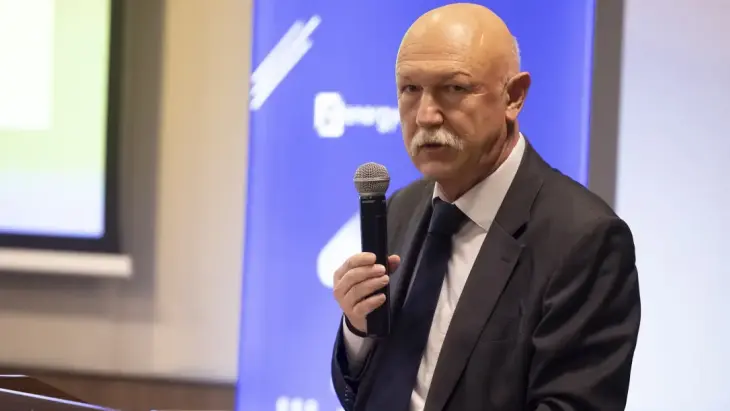The most convenient solution for reducing imbalances caused by the “big appetite” of those who build residential photovoltaic power plants in the energy system of the Republic of Moldova is represented by electricity storage systems.
“We have a great appetite from investors, but that boils down to uncontrollable energies, i.e. wind and solar. We have two problems and both are technical. The first is the balancing capacity of the system (…), and the second is the agglomeration of residential solar power plants”, said Alexandru Săndulescu, EU High Level Adviser on Energy, during the “Regional Approach Chișinău” conference organized by Energynomics.
The Republic of Moldova has difficulties in ensuring the balancing of the system due to the fact that it does not have hydropower resources nor does it have natural gas thermal power plants. For this reason, there are no participants in the balancing market either. Although investments in balancing plants would represent the necessary solution, they are missing because they are not incentivized.
One of the causes of the absence of balancing plants is the banks’ lack of interest in financing such projects, among others because these plants should operate on the basis of natural gas, and this fuel “is not exactly something to finance”. On the other hand, investments in renewable sources are supported by mechanisms that ensure price stability for 15 years and by the guarantee that the energy it delivers will be taken up in the market.
“We are in a vicious circle in which projects cannot be implemented above a certain capacity, but this limit cannot be increased either due to the lack of investments in balancing units”, added Săndulescu.
The second technical problem is represented by the “great appetite” for roof-top PV panels. In this sector, the large number of projects creates congestion in the distribution networks and thus leads to the disconnection of PV plants, which produces “a general dissatisfaction”.
These dysfunctions could be corrected by introducing some “simple but effective” measures, namely limiting installed capacities in the residential sector and forcing residential beneficiaries to invest in their own electricity storage units.
“The lithium-ion battery looks good on paper, but it’s expensive and probably won’t be a solution for many years. We will need 200 MW of balancing sources in order to have, in 2030, 600 MW in wind and 200 MW in solar, as provided for in the long-term programming vision of the system”, Săndulescu also said.
The conference “Regional Approach Chișinău” was organized by Energynomics with the support of our partners Huawei, Siemens Energy, Transgaz.
